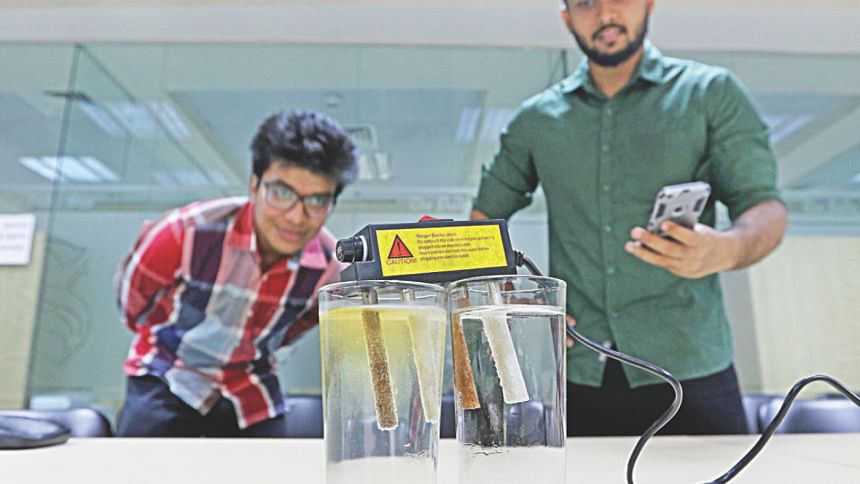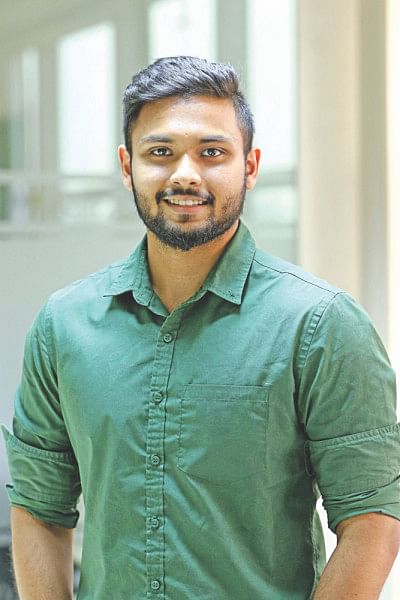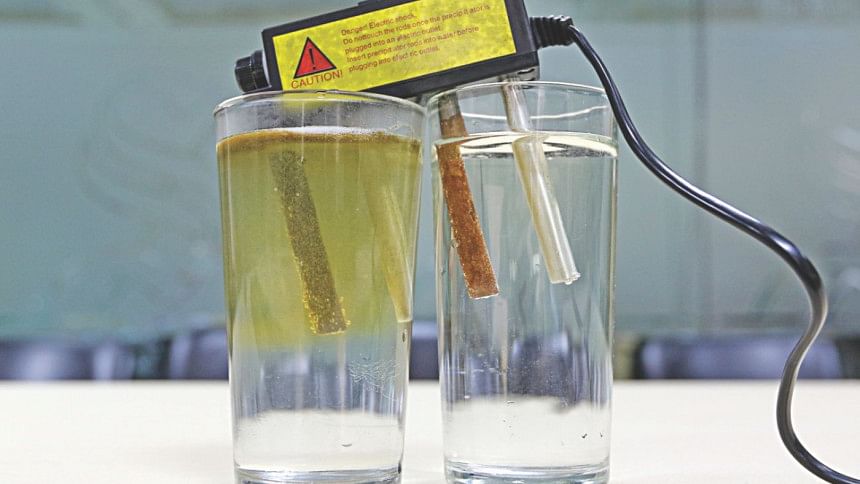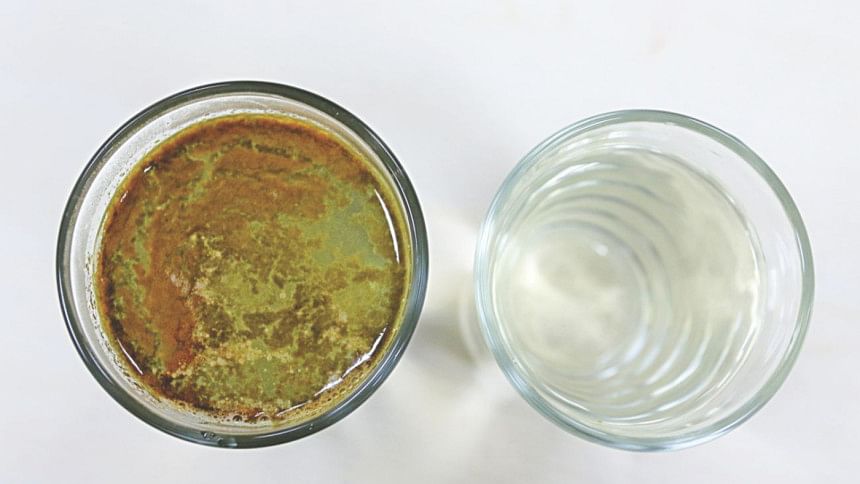Fulfilling the Thirst of the Masses

Water is an essential fluid on which all life depends. Even then, access to clean and safe drinking water is one of the most pressing, yet relatively overlooked issues in Bangladesh. Consuming contaminated water is not only unhygienic, but also life-threatening. Especially in a congested city like Dhaka, one can never be too careful about waterborne diseases.
Working to provide clean water to the communities has turned crucial, and this is where Project Trishna takes on its main role. Project Trishna is a volunteer-driven social venture conceptualised and developed by Footstep Foundation, a youth-based social enterprise which started its journey in 2013. The project's aim is to provide free access to clean and safe drinking water for the general public, especially the underserved sectors. The initiative appeals to individuals and enterprises that may buy one of Project Trishna's customised water filters. Private enterprises maintain these filters as part of their Corporate Social Responsibility (CSR). These filters are set up on sidewalks or in front of buildings and offices to provide a source of free clean drinking water to anyone who needs it.
Project Trishna looks at water as a basic human right rather than a commodity to make a profit from. They currently use Reverse Osmosis technology to purify water. However, they are planning to switch from Reverse Osmosis to resin nanotechnology soon.
Their devices are set up in over 20 locations in the city, including Rampura, Banasree, Gulshan, Banani, Dilkusha, Shangshad Avenue, Mirpur, Mitford and Baily Road. They also aim to set up devices outside of Dhaka.

Shah Rafayat Chowdhury, President and Co-founder of Footsteps Foundation and a student of Environmental Economics at Pennsylvania State University in the USA, says, “Every community is unique in its own way, and we must ensure a solution that tends to the exact needs of the community. Once we reach a certain number of devices in the city, we plan to expand to Chittagong and then to other municipalities of the country.”Mohammad Taqi Yasir is the Vice President of the organisation.
We have all witnessed the waterlogs and how the entire country becomes a gridlock during monsoon. The flood water makes it difficult for the entire city to function. Project Trishna wishes to improve this condition as well. Shah Rafayat adds, “We also have plans to harness flood water and turn it into an entrepreneurial opportunity.”
Furthermore, in a study by Bangladesh Agricultural Research Council (BARC), reported in The Daily Star in 2017, it is shown that E. coli bacteria is found in 98 percent jar water samples, collected from 24 points of the capital. Diseases such as typhoid, cholera, and jaundice are caused because of such impurities in the water. So, while providing access to free water to the mass, Project Trishna must also ensure the purity of the water. They use a pocket-sized electrolysis machine to test the impurities.
The electrolysis machine exposes the iron content in water. The water containing iron turns yellow after electrolysis. It comes in handy when they need to prove the condition of the water to other people on the spot. Since people should be careful about what they are consuming, it is devices like these that make people believe in the cause.
The project has grown significantly since its inception in 2015. In the beginning, their manual device could carry only 23-litres of water. However, their latest ones can purify over 280-litres of water in a day. They currently have 75 devices established in the city which allow access to over 5 million litres of free clean drinking water with assistance from their CSR clients.

Over the years, the project has seen many noteworthy accomplishments. Currently, Project Trishna has over 30 clients, including companies like City Bank and notable individuals such as the newly appointed Environment and Forestry Minister Barrister Annisul Islam Mahmud. The project has been chosen as one of the 60 global change making projects by the Swiss NGO Global Changemakers to be represented at the Global Youth Summit 2017.
Nevertheless, the team behind Project Trishna faced many setbacks to reach this point. One of the challenges was criticism regarding their first device, because it had bugs in it. The team now continually develops the different aspects and design of their devices to make sure they are achieving their purpose.
Educating people about safe drinking water served as another challenge.`“Many people have misconceptions about drinking water; they think that if the water is clear then it must be pure. People are misinformed about boiling water as well. Boiling water can kill the bacteria and viruses, but it does not remove metallic elements such as asbestos and arsenic which accumulate in our organs and expose symptoms later in life. Each challenge has motivated us more to work on a solution to the problem,” explains Rafayat.
As for the funding, Project Trishna has three main sources of revenue: sale of devices, servicing of devices, and external funding. They receive a contracted annual fee from their clients. This money is used to service and maintain the device for the entire duration.

Moving forward, Project Trishna hopes to address the water problem in both rural and urban communities to ensure access to clean and safe water for all by 2030.
Since this initiative is working towards solving a vital problem, the general mass should also cooperate to help the project grow. The importance of clean and safe drinking water should be engraved in us and the people around us through raising awareness. More companies should step forward to pursue Project Trishna's water devices in order to address the drinking water crisis.
Impactful change takes time, but its results can be life-changing. The team behind Project Trishna are determinedly and committedly doing their part to reduce the health risks of the country to a great extent, as a healthy country will be prosperous for all.

 For all latest news, follow The Daily Star's Google News channel.
For all latest news, follow The Daily Star's Google News channel. 



Comments